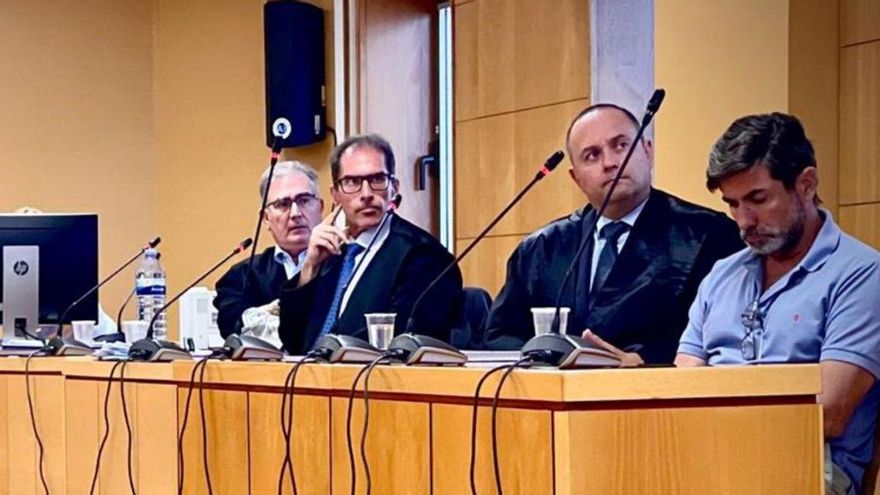
The nine members of the jury unanimously found the man guilty of breaking into a woman’s home, for whom he had commissioned the decoration of the interior of his house. This is the verdict that was read out on Thursday afternoon during the final session of the trial held at the Fifth Section of the Provincial Court of Santa Cruz de Tenerife.
The accused, already declared guilty, had gone to the interior designer’s home to demand a sum of money he had paid up front for the decoration work, which led to a dispute between them. It was at that moment that the decorator insisted he leave her house, indicating she would make the payment via bizum the following day. However, that explanation did not satisfy the client, who refused to leave the property for about twenty minutes, the time it took for the police to arrive after a call was made to 112, in which the victim alerted them to what was happening inside her home.
The events took place in a garage of a detached house in Santa Cruz de Tenerife. This space was used by the owner to provide English lessons. This is how the accused got to know her; he saw an advertisement online offering those lessons and hired her to provide private tutoring for his children. Later, he and his wife discovered she was also a decorator and commissioned her to decorate their home.
The sentencing is based on the fact that from the moment the woman demanded he leave the garage of her residence until the police arrived, 20 minutes elapsed, as seen in a video from a security camera installed in the property.
During that time, as seen in the images shown in the courtroom, the accused refused to leave until the decorator handed over the money. In light of this behaviour, the complainant called 112 in the presence of the man and explained what was happening. The officers took 20 minutes to arrive at the property and found both the man and the woman outside.
After hearing the verdict, the prosecution, the private prosecution, and the defence requested that the minimum penalty, which is six months in prison, be imposed, and that entry into prison be suspended. The defendant will have to cover all costs arising from the trial with a jury, including fees, meals, and travel expenses.
In this case, the prosecution considered it more appropriate to prosecute the matter as a minor coercion offence due to the insistence on payment, which would have avoided the need to convene a jury as required for breaking and entering offences. For this reason, the public prosecutor did not request any penalty for the defendant in its initial indictment, while the private prosecution sought a two-year prison sentence and waived any financial compensation.
Subscribe to continue reading















